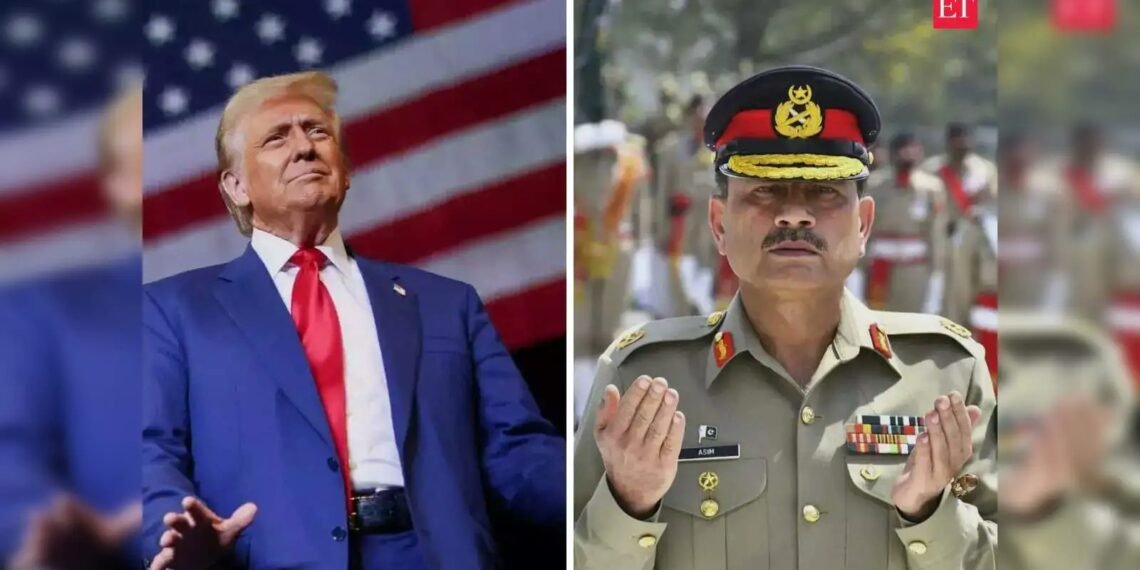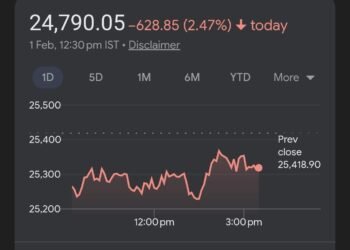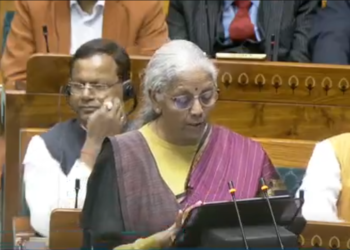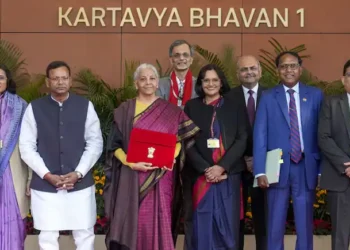The private lunch, notably excluding Pakistani civilian leaders, positions Pakistan as a potential U.S. intelligence and diplomatic partner against Iran—raising eyebrows in India and Tehran.
BY PC Bureau
President Donald Trump welcomed Pakistan’s Army Chief, Field Marshal Asim Munir, to the White House for a private luncheon on Wednesday, a rare diplomatic gesture that has set tongues wagging about U.S. strategy in the face of rising tensions with Iran and delicate relations with India. The closed-door meeting, notably absent of Pakistani civilian leadership, signals Washington’s intent to leverage Pakistan’s unique position as it navigates the Iran-Israel crisis and regional power dynamics.
A Strategic Lunch with Iran in Focus
The White House billed the meeting as a discussion on regional security, but Trump’s post-lunch remarks zeroed in on Iran. “They know Iran very well, better than most, and they’re not happy about anything,” Trump told reporters, referring to Pakistan. “They see what’s going on. And he agreed with me.” While details remain scarce, the comments suggest the U.S. is probing Pakistan’s potential role in countering Iran’s nuclear ambitions, which have come under scrutiny following Israeli airstrikes on Iranian facilities and Tehran’s retaliatory moves.
Pakistan, a nuclear power with a 900-kilometer border with Iran, maintains close ties with Tehran, including facilitating backchannel U.S.-Iran communications through its embassy. Munir was likely to have pushed for de-escalation, echoing Pakistan’s public stance on a Middle East ceasefire. Yet Trump’s emphasis on Pakistan’s deep knowledge of Iran hints at U.S. interest in intelligence-sharing, military cooperation, or even mediation to curb Tehran’s influence—a prospect complicated by Pakistan’s public support for Iran against Israel’s actions.

READ: Adani Cement Project Under Fire in Assam over Tribal Land Allocation
A Rare Nod to Pakistan’s Military
Inviting a foreign army chief to a White House lunch is an uncommon move, with historical parallels only in past Pakistani military leaders like Ayub Khan, Zia ul-Haq, and Pervez Musharraf. Munir’s invitation underscores his outsized influence over Pakistan’s foreign policy and the meeting’s strategic weight. However, it also raises eyebrows given the Pakistani military’s ties to terror groups, with officials recently attending funerals of militants killed in India’s Operation Sindoor—a sore point for both Washington and New Delhi.
“I was honoured to meet Pakistan Army’s Chief of Staff today”
— US President Trump.
🔹Note to India: America is not your ally
🔹Note to China: Pakistan is not your ally
The US is re-architecting crucial dynamics in the region. pic.twitter.com/iCuKlAoFLo
— S.L. Kanthan (@Kanthan2030) June 19, 2025
Trump cast the meeting as a diplomatic win, saying, “I was honored to meet him today.” He praised Munir alongside Indian Prime Minister Narendra Modi for averting a “war” between their nations, referencing a recent India-Pakistan ceasefire. “Two smart people, two very smart people decided not to keep going with the war. Those are two big nuclear powers,” Trump said, also teasing trade deals with both countries as part of his broader outreach.
READ: Census and Suppression: Manipur Tribals Fear Repeat of Past Injustice
Iran’s Concerns
For Iran, the Trump-Munir meeting is a potential warning sign. Pakistan’s vocal backing of Tehran—Munir recently labeled Israel’s strikes as “violations of international law”—makes any cozying up to U.S. interests a tightrope walk. Analysts doubt Pakistan would join an anti-Iran coalition outright, given its balancing act between Tehran, Gulf states, and the U.S. Instead, Munir likely pitched Pakistan as a mediator, using its Iran ties to advocate for calm while angling for U.S. concessions like trade agreements or counterterrorism aid.
Still, the U.S. may view Pakistan as a key piece in a potential anti-Iran strategy. With talk of U.S. military action against Iran’s nuclear sites, Pakistan’s proximity and intelligence capabilities could be valuable. But Pakistan’s history of playing both sides casts doubt on its dependability as a partner.
India’s Wariness
The meeting could strain U.S.-India ties, as New Delhi remains wary of Pakistan’s military and its terror links. India, a vital U.S. ally in the Indo-Pacific, rejected U.S. mediation in its recent spat with Pakistan, insisting the ceasefire was secured through direct talks. Trump’s warm words for Munir may irk India, which is also in trade talks with Washington, potentially complicating the U.S.-India partnership.
READ: UNLF Camp Relocation, Land Dispute Also Surfaced in MHA–SoO Group Talk
A Signal, Not a Shift
The Trump-Munir lunch is less a game-changer than a calculated signal of Washington’s readiness to engage tricky partners in a volatile region. For Iran, it’s a cue to stay alert as neighbors like Pakistan navigate U.S. overtures. For Pakistan, it’s a chance to boost its global clout, though Munir’s cautious stance suggests Islamabad will guard its own interests above any U.S. agenda.
As the Middle East simmers and U.S.-India relations hang in delicate balance, the world awaits clarity on whether this White House meeting heralds a new phase in U.S.-Pakistan ties—or merely another bold stroke in Trump’s unpredictable diplomacy.













